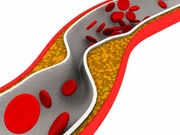IAT seems to be at least as effective for patients with acute ischemic stroke, with versus without ECD
THURSDAY, June 1, 2017 (HealthDay News) — Acute intra-arterial treatment (IAT) seems to be as effective for patients with acute ischemic stroke caused by intracranial proximal occlusion with, versus those without, extracranial carotid disease (ECD), according to research published online May 23 in the Annals of Internal Medicine.
Olvert A. Berkhemer, M.D., Ph.D., from the Academic Medical Center in Amsterdam, and colleagues conducted a prespecified subgroup analysis of a randomized clinical trial of endovascular treatment for intracranial proximal anterior circulation occlusion in 16 hospitals in the Netherlands. Participants received either IAT or no IAT.
The researchers found that the functional outcome was associated with an adjusted common odds ratio (acOR) of 1.67 (95 percent confidence interval [CI], 1.21 to 2.30) in favor of the intervention. In the prespecified subgroup of patients with ECD, the acOR was 3.1 (95 percent CI, 1.7 to 5.8), compared to 1.3 (95 percent CI, 0.9 to 1.9) in patients presenting without ECD (P for interaction = 0.07).
“Intra-arterial treatment may be at least as effective in patients with ECD as in those without ECD, and it should not be withheld in these complex patients with acute ischemic stroke,” the authors write.
Several authors disclosed financial ties to biopharmaceutical companies, including AngioCare, Medtronic/Covidien/EV3, MEDAC/LAMEPRO, Penumbra, Stryker, and Top Medical/Concentric, all of which partially funded the study.
Copyright © 2017 HealthDay. All rights reserved.








